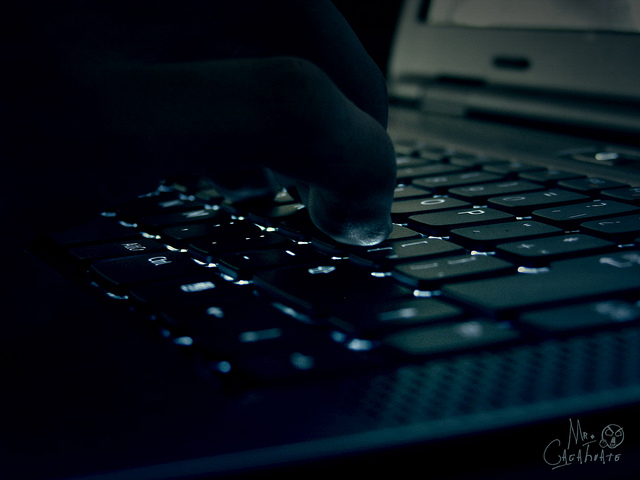Cyber attacks
Given the countrys location in an area of instability, in 2014, the number of cyber attack threats in Romania rose by a dramatic 80% compared with 2013.

Corina Cristea, 24.07.2015, 11:11
Every day, Romania
comes under hackers’ attacks, their target being public institutions, private
and state-owned companies, banks and even the website of the Orthodox
Patriarchy, says Augustin Jianu, a director with the Cyber Security Incident
Response Centre CERT-RO, which is an independent analysis, research and
development body in the field of cyber infrastructure protection. Despite
measures taken to counteract cyber attacks, vulnerability is still high. Merely
sending an email or posting something on a social network provides personal
information that can be used by hackers. Augustin Jianu explains:
The moment a work
station, a computer or several devices in a network are infected or compromised
they become part of hot-net-type networks and are used by hackers to launch
further attacks on other infrastructures, without the owners of those devices
or work stations being aware of this. To give you a light-hearted example, it’s
possible that someone’s intelligent fridge connected to the home network may be
sending thousands, hundreds of thousands of spam messages a day and the owner
of the fridge not to even be aware of this.
According to the official CERT-RO report, 54%
of the alert threats received were about poorly configured, insecure or
vulnerable information systems, while 24% of the total number of unique IPs
allocated in Romania were involved in at least one case of cyber security alert
in 2013, up by 16%. The attacks on the Romanian cyber security space targeted
almost all areas of economic and social life and even the administration, says
the president of the Study Centre for Security, Crisis Management and Conflict
Prevention in Bucharest, Alexandru Groseanu:
Some 44 million
cyber attacks were reported in 2013 and over 78 million in 2014. I believe that
it is because of the security balance being disrupted and the confrontation
with our big neighbour in the east that the number of cyber threats and attacks
has increased. Most attacks have been rejected and are correctly managed.
Obviously, most attacks target the administration, but also businesses and databases.
In spite of this, the institutions active in the field of cyber protection are
doing their job very well and consequently no major incidents have been
registered.
Alexandru Groseanu
recalls that Romania has committed itself to providing cyber protection for
Ukraine and believes that Bucharest can become a provider of cyber security in
the region, especially in the current geopolitical context, in which cyber
attacks are on the rise. Alexandru Groseanu:
If we talk about
the number of active IPs, the number of active Romanian websites, which is how
we define the cyber space, we can see it is on the increase. It’s true that
between 2013 and 2014 the number of IPs decreased, but the content of the cyber
space, in terms of the number of databases, has expanded, and in this respect
the cyber space is constantly expanding. Obviously, the number of cyber attacks
in an ever expanding cyber space is likely to increase. If we look at the
geopolitical and geo-strategic context, I find it hard to believe that a
security balance can be achieved in the near future, let’s say within the next
6 to 12 months.
Figures are
worrying. If around 30,000 cyber attacks were reported daily some years ago,
their number now exceeds 390,000. Cyber security experts say protection must
start with people’s personal computers and other devices that use the Internet.
They must be protected with antivirus, antifishing and anti-spyware programmes.
Intelligent phones and all other Internet connected devices that a family has
must be protected in the cyber space. The number of terminals connected to the
internet varies from 10 to 55 per household, and more than half of them are
poorly protected or have no protection at all, says Florin Talpes, the founder
and executive manager of Bit Defender, a Romanian company with an international
reputation in the area of anti-virus technology. The company has launched Bit
Defender Box, a product designed to protect family devices and expects a lot of
demand for this product to come from the USA, Germany and Japan, which are the
most developed markets in this respect. Florin Talpes:
Any device owned by
a family and connected to the Internet, whether it’s a computer, a smartphone,
a smart TV or a game console, faces the threat of cyber attacks, some of which
can be extremely damaging. Someone may hack into your TV and, without you
knowing it, may watch everything you do at home, or someone may simply get hold
of your bank account data from your computer.
According to Florin
Talpes, the world is faced with new types of cyber attacks every day.






























